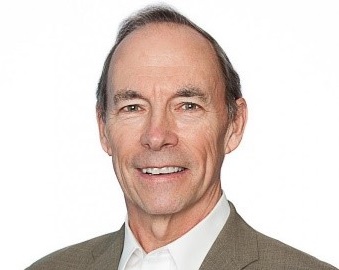
Claire Altman is Key Participant at Affordable Housing Conference
Remarks by Claire Haaga Altman at The Steven L. Newman Real Estate Institute’s “Implementing Affordable Housing” Conference
A House Alone is Note A Home
February 18, 2015
Claire Haaga Altman is the Director of Affordable & Supportive Housing Development at Capalino
 Richard Barth asked me to speak about the development of affordable and supportive housing from the perspective of someone who has developed such housing in the not-for-profit sector for over 25 years. In addition to the bricks and mortar, there are a number of factors we have to consider if we are to be successful in providing real sustainable homes for the individuals and families who need these houses.
Richard Barth asked me to speak about the development of affordable and supportive housing from the perspective of someone who has developed such housing in the not-for-profit sector for over 25 years. In addition to the bricks and mortar, there are a number of factors we have to consider if we are to be successful in providing real sustainable homes for the individuals and families who need these houses.
New York City, like many urban areas, is struggling with a wide range of social issues that underscore the fragility of our social fabric: 40% of NYC’s residents have incomes at only twice the poverty level or less.
Some of the populations that are generally viewed as the “hardest to house” include: low income seniors, veterans, disconnected youth (172,000 primarily African American and Latino men aged 18-24), homeless individuals and homeless families, victims of domestic violence – 1/3 of the families in shelters.
Income is clearly a major factor contributing to the social issues these individuals and families face: 35% of New Yorkers over the age of 18 worked in a low wage job (less than $12.89/hour) in 2012 and 42% of NYC residents live in households that cannot afford basic necessities, including food, shelter, health care and child care. In addition, many in these populations have physical and/or mental/behavioral disabilities and low educational levels.
Creating affordable housing is clearly a cornerstone of any overall plan that will assist these populations to move from a subsistence level to a level of living healthy, productive lives. But affordable housing is only one of the elements that will help to reduce the equality gap that the Mayor has put front and center as a primary goal of his administration.
I would posit that the key factors– in addition to affordable housing — that are necessary for people to have livable homes are: community, safety, accessibility to services and sustainability.
To make the investment in housing that Mayor deBlasio is calling for a success, we need to do more than build housing – we need to be willing to experiment with new housing models and types. And we need to involve those with experience in providing these services as well as the consumers themselves to help guide us to incorporate into these housing developments services that will help families and individuals succeed.
Housing Arrangements
Incorporating the factors listed above, some of the housing arrangements that we should consider:
1. Senior community housing with shared services– this can be done in stand alone buildings or in designated “senior” buildings.
2. Co-Housing arrangements– A popular model in Europe, co-housing is essentially groups of families or individuals who own or rent apartments in a complex but share common space indoor as well as ideally outdoor space. The indoor common space might include, for example, a large community area with a common kitchen where there are group meals once or more a week that everyone participates in.
3. Co-living arrangements– for youth, young working people, veterans, other older adults without families. Building Code changes might be required to permit a larger number of unrelated individuals living in a three bedroom apartment. But for people with limited resources and limited social support systems, co-living arrangements can be workable and very beneficial.
4. Assisted Living – especially for the elderly but also for those with physical and mental disabilities. Essentially, assisted living residences can be a series of studio apartments with certain common areas (dining, activity, social services). Assisted living is much more appropriate for many elderly persons with multiple chronic health conditions than nursing homes and is half the cost of nursing homes.
Housing Models
Building on possible housing arrangements that we should consider, some housing models we should consider which offer promise to address both the affordability and other support issues.
1. Modular Housing- While modular or off-site built housing has earned a less than stellar reputation in NYC for a variety of reasons, it is used widely in Europe and Asia. Current modular methods are both more manageable and yield a higher quality and more attractive product. The major selling points of modular in addition to durability and attractiveness are that generally savings of approximately 20% can be realized on the construction costs and 50% savings in terms of time to build. Given our affordability housing crisis, it seems prudent to seriously pave the way for modular construction in NYC.
2. Second, industrial and commercial buildings can be converted into live-work arrangements and co-living arrangements for artists, working people, and young people. To do this especially in Manufacturing zones will require targeted zoning changes, some of which are being proposed as for example the creation of MX zones. Greater flexibility with these types of buildings, while protecting industrial jobs and ensuring that safety and building codes are met, could yield an important housing resource.
3. Third, creating housing designs that foster shared apartments for vulnerable populations– domestic violence victims, young mothers with children, veterans. This will require some changes to the building code to permit smaller units but more shared common space. Such arrangements can be very beneficial for these populations in terms of reducing social isolation and increasing social support systems.
4. Finally, on the grounds of public housing or other institutional users, consideration should be given to low rise buildings especially to house seniors currently living in public housing and occupying larger apartments. The seniors would not have to move away from their neighborhoods and would be able to have new apartments, even some configured as assisted living, while freeing up larger units for families.
The challenge is that we need to move on all fronts at the same time– unfortunately, our housing crisis is so severe that we don’t have the luxury of a few pilot projects or rigid models.
We need to open the doors to a wide range of ideas from the for profit and not-for-profit sectors and be willing to consider creative ideas as long as they move the City closer to its goal of adding/preserving 200,000 affordable housing units. We have all the building blocks and the leadership of Mayor deBlasio to put in place the tools needed and the financial commitments to incentivize developers- now the task is ours to execute.
To see Claire’s full PowerPoint presentation, click HERE
CLAIRE ALTMAN
Director of Affordable & Supportive Housing Development Services
Claire Altman brings a strong, diverse portfolio of experience in developing affordable and supportive housing and creating innovations in health, human services and employment for underserved populations. At Capalino, Claire will develop, facilitate and advance affordable, transitional, and supportive housing projects through the use of the myriad federal, state, city and private financing sources as well as forging partnerships between the private and not-for-profit sectors. She previously served as COO of HealthCare Chaplaincy and as CEO of Volunteers of America-GNY after spending 19 years at the helm of Housing & Services, Inc
Sign up for our weekly newsletter here to keep up with the latest news in NYS.




